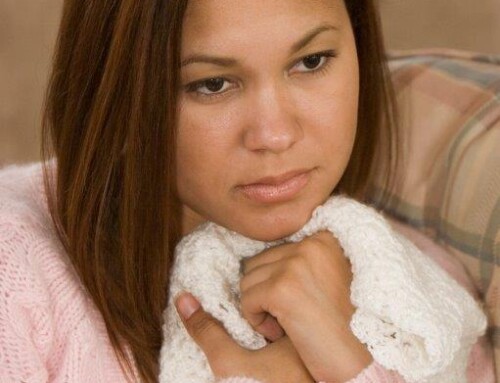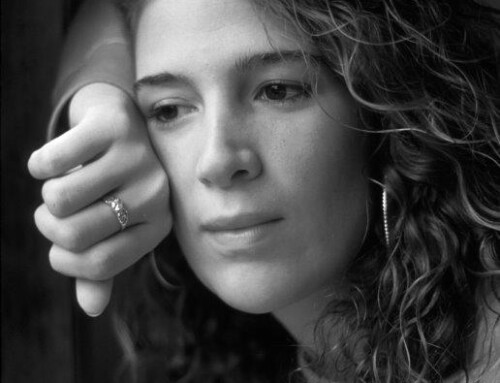
Giving sorrow words is not about the politics of abortion. The author blames the politics for drowning out the voices of women harmed by it. “Abortion is seen as such a hard won right that to criticise it, or talk about the damaging repercussions, is betraying the cause,” she said. “Some women felt they were selling out.”
The book features the personal accounts of 18 women — teenagers to 70 year-olds — and draws on the experience of 200 others. Some women spoke of one abortion, others about two to five, one wrote of twelve.
“The idea for the book came four years ago,” said Ms. Tankard Reist. “I write about women’s health issues and have always been broadly interested in the subject of abortion. I heard two women’s stories in one week and the journalist in me recognised there was a lot more to be told.”
About 300 women responded to advertisements Ms. Tankard Reist placed in women’s magazines and newspapers. Common to all the stories is the tremendous pressure the women felt to have their abortion. Few felt they had a choice.
“Many women said it was others, usually partners or parents, who wanted them to have the abortion,” Ms Tankard Reist writes in the introduction.”The experience of too many women was that the people they normally relied on for support withdrew it.”
Zelda’s husband gave her an ultimatum: “It’s me or the baby.” Zelda wrote: “I felt I had no choice….inside I was thinking ‘oh please don’t let this happen; I want to keep this child.'”
“Each night when my husband came home, I begged him ‘please don’t make me have an abortion.'”
Beatrice, 38, also had an unsympathetic husband. “I don’t use the word ‘choice’ because…when you are cornered, there does not seem to be a choice,” she wrote. “I look on my husband as the “judge” and myself as the ‘executioner’.”
Eighteen year old Melanie was pressured by her boyfriend and her parents to abort. “I didn’t have one person to support me having the baby,” she wrote.
Lena, who became pregnant at 25, wanted her child, but she did not feel strong enough to have it without her partner’s support. After they broke up, Lena felt tricked. “At the end of it all, I am left alone without the love of either the father or the child…I feel I have lost something I can never regain,” she wrote.
All the women felt a depth of grief for which they were not prepared. “A woman’s abortion pain is discounted and minimised due to the prevailing view that a termination is really no big deal, ‘just a curette’, an easy fix,” Ms. Tankard Reist writes. “Abortion is promoted by many who dominate the discourse on the subject as a procedure without repercussions.”
Many women tried to commit suicide, while others felt they had to punish themselves. Self-mutilation and eating disorders were common.”I had a strong need to punish myself, to punish the woman who had killed my child,” Catherine wrote.
Many women recalled how coldly they had been treated at the abortion clinic, how they received inadequate counselling and were hurried out after the procedure. Serena wrote: “I felt ripped off…as about 20 other women were ‘done’ in the same session. I felt so cheap, so utterly foul.”
A nurse yelled “congratulations” to Genevieve after her abortion. “I felt like a rape victim being raped over and over again by the system. All I wanted was to get out of the hell hole.”
Some women noted the irony of how they nurtured their baby leading up to their abortion. “I refused to take pain relief tablets because it could harm the baby, even though the days were slowly ticking by and his chance at life was fleeing anyway,” Justine wrote.
Catherine felt “strangely protective towards the baby.” “Such contradictions,” she wrote. “Even as I was planning to kill it, I was also nurturing it. I stopped smoking and drinking, was careful about what I ate and what I lifted.”
The women struggled to find ways to cope with their loss. Justine visited a cemetery and “adopted” the grave of a baby boy who had lived only three days.
After her abortion, Zelda bought a blue teddy bear and pretended it was her baby. “She would push it in a pram,” Ms. Tankard Reist said.
Three women said they felt like snatching babies. Their sense of loss was so strong, they were looking for anything to replace it.
Because conventional wisdom is that abortion is mostly trouble-free, Ms. Tankard Reist said women who were troubled were forced to be “invisible.” “Their stories have been disqualified,” she writes. “Their experience is trivialised. Grief for an aborted baby is forbidden grief: it remains taboo.”
Ms. Tankard Reist said she wanted people to understand what abortion meant for many women.
“It isn’t the quick fix it is presented as,” she said.
“Abortion can devastate some women for the rest of their lives. It touches women at an extremely deep and emotional level. If the potential ramifications aren’t told to women, they can not make a free and informed decision. The book is for the women who contributed to it. For the first time in their lives, when everyone else has been denying their children, they have been validated.”
I felt I had to do it for everyone.
Jane had an abortion two days before Christmas in 1997. She was 19. Now 22, Jane is pregnant and this time she is determined to have her child. “I would never survive another abortion,” Jane said. “When I first fell pregnant, I had been with my boyfriend two years. I was working and living at home. My boyfriend didn’t want the baby. Neither did my parents. They didn’t think I could cope financially and said I was too young. My boyfriend once said: ‘if you have it, I couldn’t love it’ and that really affected me. I didn’t want the abortion. I was absolutely terrified. But I felt I had to do it for everyone else.”
Jane said the counselling at the abortion clinic was “pathetic.” “The woman was hopeless,” she said. “She just said ‘we have a problem here; let’s get rid of it’.” After the abortion, Jane felt hatred towards her boyfriend and her family. She also felt tremendous guilt and deep grief.
“I became depressed and suicidal, my family wondered why I was hysterical when it was all over,” Jane said. “I felt I was dealing with it on my own.”
Jane sought counselling at Open Doors Counselling Centre in Ringwood and later saw a psychiatrist for three months. “I had been told that, at 12 weeks, my baby was just a bunch of cells,” she said. “Then the counsellor explained how much the baby was formed and that made me feel worse.”
Jane fell pregnant four months ago, to the same man. “I told him after my abortion that if I ever got pregnant again, I would never have an abortion; that I would rather bring it up on my own,” she said. “He’s a lot better about it. We’re living together, both working and planning to get engaged.”
Jane said she believed little attention was paid to the psychological effects of abortions. “If I had read the book Giving sorrow words (to which she contributed) before I had the abortion, there’s no way I would have gone ahead with it,” she said. “There’s got to be much more counselling before and after.”
One of the hardest things for Jane was having nowhere to grieve for her baby. “My niece died soon after (the abortion) when she was 18 days old, and we got to grieve at her grave,” Jane said.
“I’ve got nothing. There is absolutely no recognition of my child. Teenagers need to be told of the consequences of abortion. The message is: ‘Don’t worry, you can get an abortion and you’ll be fine the next day.’ But you won’t be.”
Reprinted with permission from the Sunday Herald Sun, April 30, 2000, Melbourne, Australia.
The book “Giving sorrow words” may be borrowed from the Action Life resource centre.



